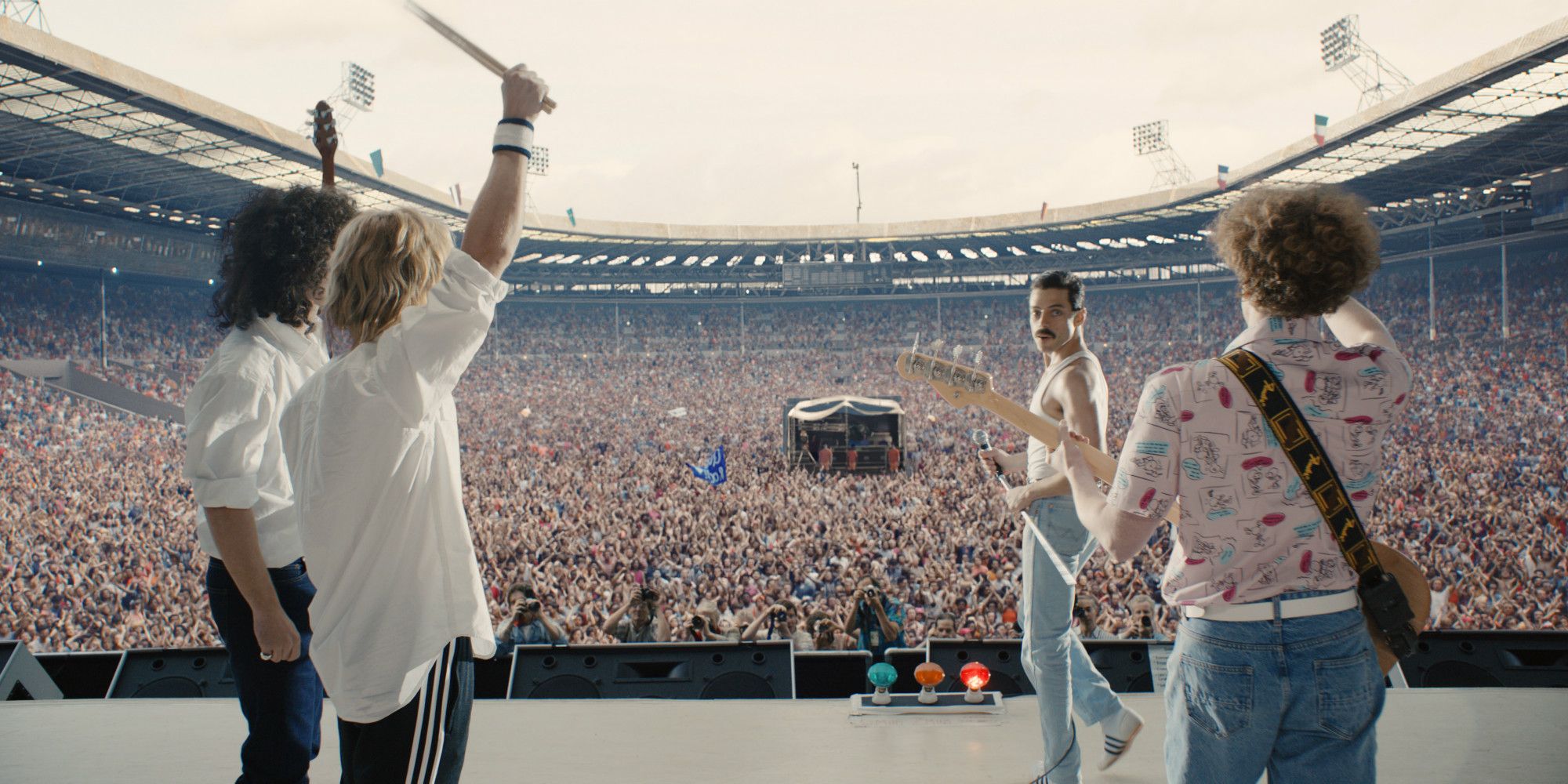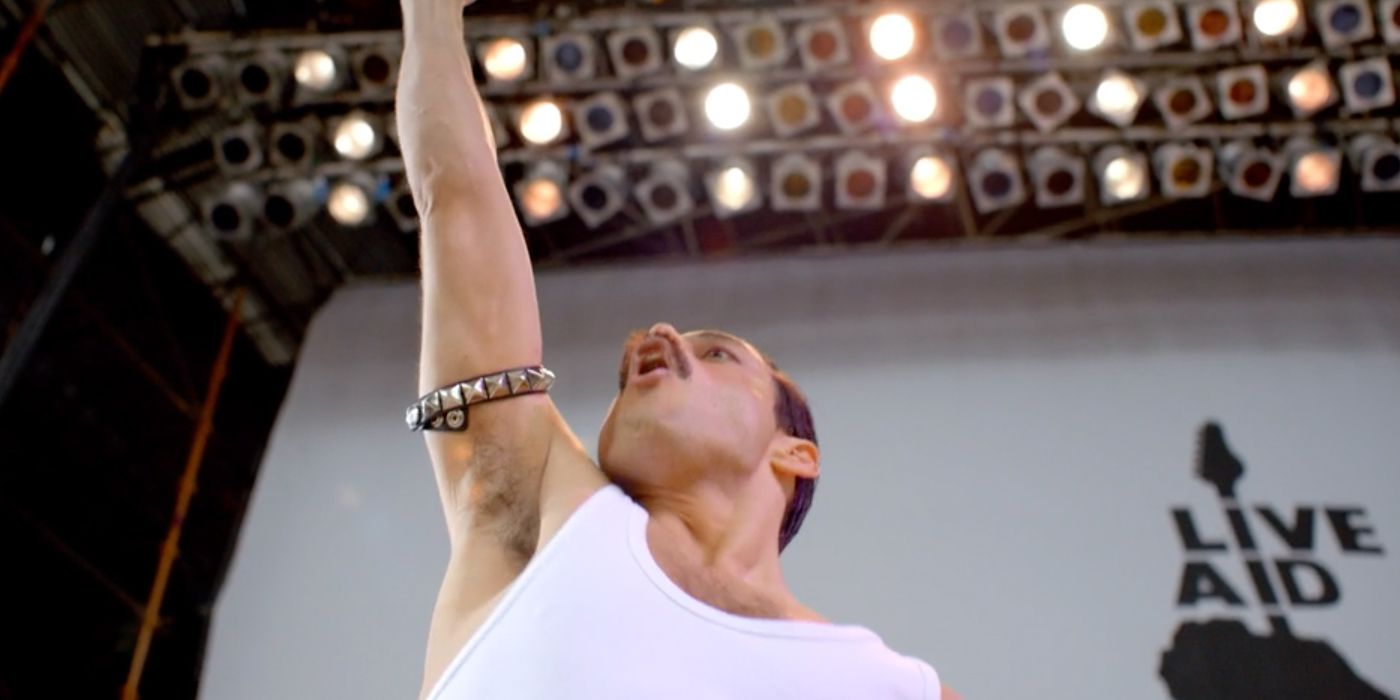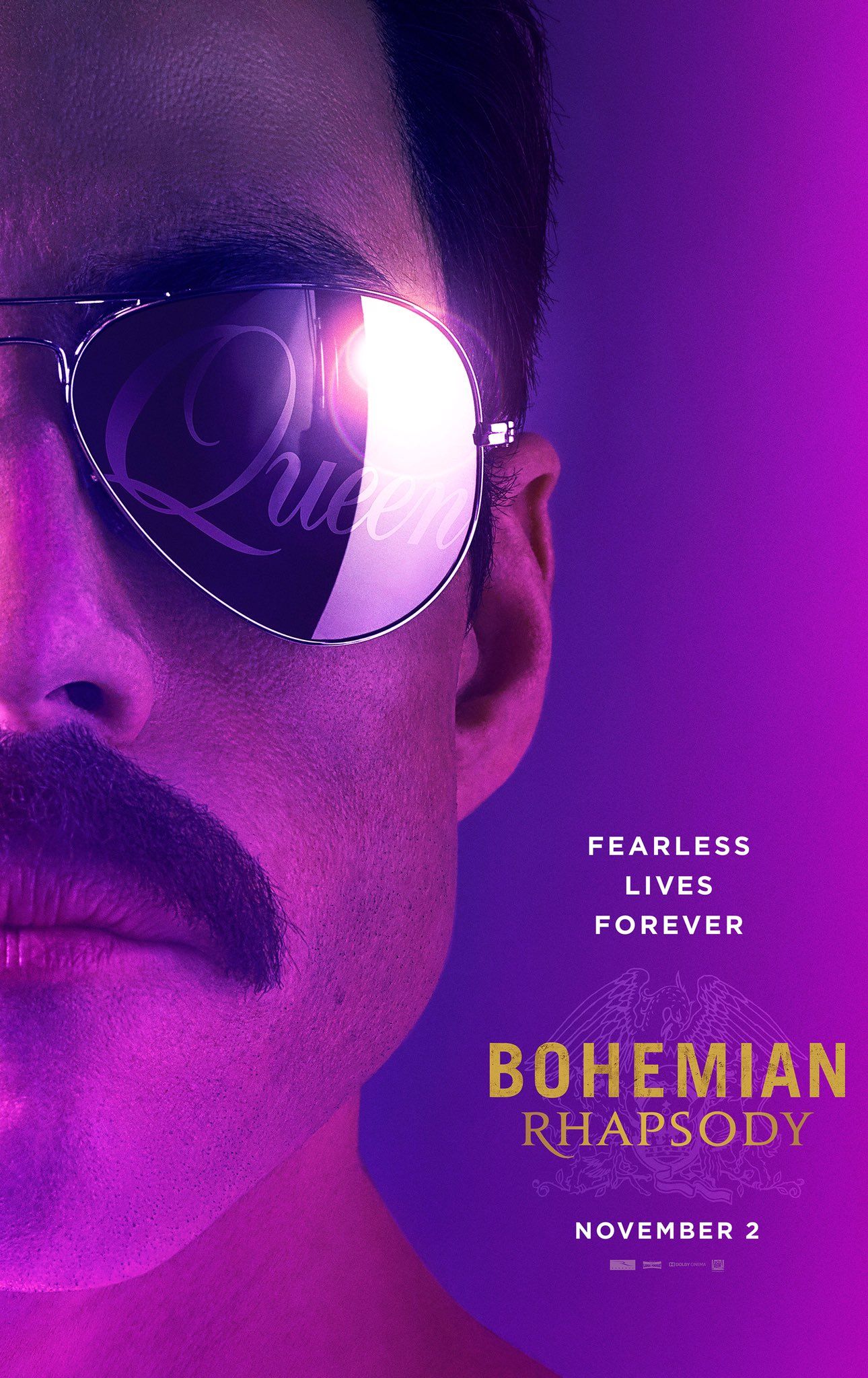Warning: SPOILERS For Bohemian Rhapsody!
-
Bohemian Rhapsody is a problematic movie with a saving grace: it has a great ending that elevates the film. Bryan Singer's biopic has received some brutal reviews from critics, although audiences (especially fans of Queen) are responding much more positively to the film, thanks mainly to Rami Malek's dynamic performance as the late Freddie Mercury. Featuring a wall-to-wall soundtrack with 22 of the band's hit songs, Bohemian Rhapsody is also a joyous celebration of Queen's music.
The finished film bears the scars of the many issues that plagued the film's production. After completing most of the film, Bryan Singer was fired in early December 2017 due to "unexpected unavailability". Cinematographer Newton Thomas Sigel stepped in briefly as director before Derek Fletcher was hired to replace Singer and complete filming. The resulting film is a sanitized and conventional biopic that feels like it meanders to each plot point. Thankfully, the performances are strong throughout - along with Malek embodying Mercury in body and spirit, Gwilym Lee is a standout as Queen's guitarist Brian May - and placing Queen's music center-stage is one of the film's great strengths. But they also have an ace-in-the-hole: a killer ending.
Related: Bohemian Rhapsody's True Story: Everything The Movie Changed
Bohemian Rhapsody ends where it begins, with Queen's triumphant performance at Live Aid on July 13, 1985 (which the film recreates almost in its entirety). An exact replica of Wembley Stadium was built for the finale, which becomes an immersive concert experience, with Malek beat-for-beat mimicking Mercury's mannerisms and irrepressible performance.
As the band dazzles the live crowd and the audience watching around the world, several subplots receive payoffs: Bob Geldof (Dermot Murphy) is thrilled at the donations pouring in during Queen's set, Freddie's parents finally get to see their son perform on the telly, and Queen's former EMI record exec Ray Foster (Mike Myers) realizes he made a big mistake firing the band from his label. The fact that these moments either didn't happen exactly this way in reality or are altogether fictional doesn't detract from the exhilaration the audience feels at Bohemian Rhapsody's flawless recreation of Queen tearing up the stage at Live Aid as Singer's camera swings from the band to the enraptured faces in the crowd.
The film's buoyant emotional climax is set up by the key resolutions of the third act. After breaking up the band and going solo, Freddie learns that he's been lied to by his manipulative personal manager Paul Prenter (Allen Leech). Realizing that he needs his bandmates, who are also his found family, Freddie begs forgiveness from May, Roger Taylor (Ben Hardy), and John Deacon (Joseph Mazzello) and reveals to them that he has contracted AIDS. Burying the hatchet, the band reforms, fully supporting their ailing frontman and giving him the confidence he needs "to be Freddie Mercury" again. Before he takes the stage at Wembley, Freddie also gets his personal life in order: he reconnects with Jim Hutton (Aaron McCusker), who would be his boyfriend for the remainder of his life, and he takes Jim to meet his estranged parents, finally healing old family wounds.
Altogether, the scenes building to Live Aid are touchingly emotional moments about asking for forgiveness and receiving it. As he's depicted in the film, Freddie could be "a real prick" and grew selfish and difficult to work with, but his growth as a person fuels his exuberant final performance in the film.
Bohemian Rhapsody is reminiscent of a different rock biopic, 1978's The Buddy Holly Story, which is also a conventional telling of a famous rock star's rise to fame that plays fast and loose with history. It also concludes with a big, crowd-pleasing concert as its finale (before a title card explains that Buddy Holly died in an infamous plane crash with Richie Valens and The Big Bopper, just as Bohemian's credits explain Freddie's final years and death in 1991).
Despite the liberties it takes with real-life events, Bohemian Rhapsody isn't a documentary, it's a film and its goal isn't to disseminate facts but to reveal emotional truth. Its climax admirably builds to a true catharsis when Queen rocks Wembley Stadium. And when Freddie, Brian, Roger, and John exit the stage to thunderous applause, Bohemian Rhapsody fulfills one of the most important adages of rock & roll: it leaves the audience wanting more.



